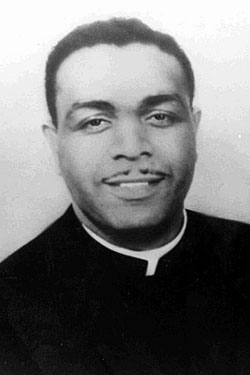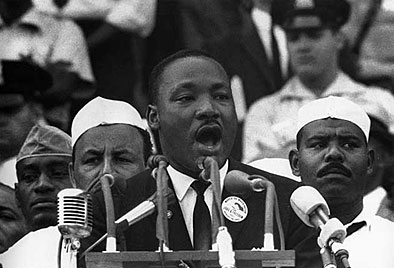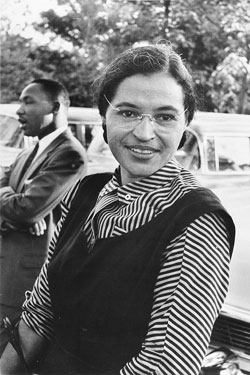Racial Discrimination Continues
Society saw much change after the war, especially regarding segregation and civil rights. In 1951, Oliver Brown sued the Topeka, Kansas Board of Education (Brown v. Board of Education) because his daughter was made to ride a bus to a school that was designated for African American children even though there was a public school she could walk to seven blocks away from where she lived. On May 17, 1954, the Supreme Court ruled in favor of the Browns.


Then in 1955, another monumental event regarding discrimination took place in Montgomery, Alabama. Rosa Parks, an African American woman, sat in a seat on a public bus. When a white man got on the bus, Parks was expected to give the seat up to him, but when Parks was asked to move, she refused. She was later arrested and ordered to stand trial for her actions. Civil rights leaders in Alabama began planning a boycott of the bus system. Martin Luther King, a Baptist minister, served as the spokesman for the movement. After a year, the Supreme Court ruled that bus segregation was unconstitutional.

